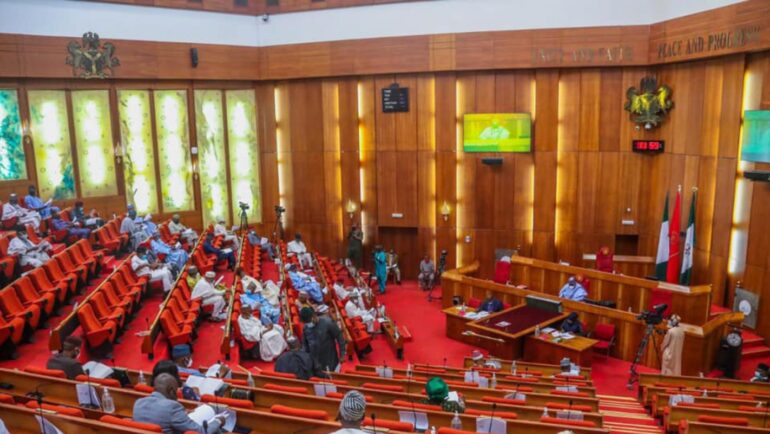Four months after presenting the tax reform bills to the National Assembly for consideration, President Bola Tinubu has urged the Senate to deliver workable laws from the proposed legislation.
As public hearings on the tax reform bills commenced, Senate President Godswill Akpabio emphasized Nigeria’s choice between implementing the reforms to shed its “sleeping giant” status or continuing with old practices. He also criticized citizens who demand better governance but evade taxes.
During the hearing, the Arewa Consultative Forum (ACF), a northern socio-cultural group, submitted its report containing recommendations on the bills, urging the retention of the 7.5% Value Added Tax (VAT). The ACF’s position aims to address Nigeria’s current economic challenges and ensure that the reforms are equitable across the country.
On the first day of the two-day public hearing, stakeholders overwhelmingly supported the tax reform bills, which had initially faced strong opposition, particularly from the Nigeria Governors Forum. In a surprising turn, the ACF dismissed claims that the North opposed the reforms.
Senate Committee on Finance Chairman, Sani Musa (Niger East), revealed that President Tinubu had recently told him to ensure the bills produce “workable laws” that are fair and beneficial to all regions of Nigeria.
“I met with President Tinubu two days ago, and he urged me to produce a law that works for everyone, from the tax reform bills forwarded to the Senate in October,” Musa shared at the hearing.
Senate President Akpabio, in his opening remarks, condemned critics who hadn’t read the bills but were quick to attack them on social media. He called on the committee to address misconceptions and ensure that the tax reforms serve the public good.
The Senate reaffirmed its commitment to reforming Nigeria’s tax system to enhance transparency, efficiency, and economic growth. Musa emphasized that the tax reforms were designed not just for revenue generation, but to foster a business-friendly environment, attract investment, and ensure fairness.
The four bills – the Nigeria Tax Bill (NTB) 2024, Nigeria Tax Administration Bill (NTAB) 2024, Nigeria Revenue Service (Establishment) Bill (NRSEB) 2024, and Joint Revenue Board (Establishment) Bill (JRBEB) 2024 – are part of President Tinubu’s broader fiscal reform agenda.
Musa reassured stakeholders that issues regarding revenue distribution, tax compliance, and administrative inefficiencies would be carefully addressed, with transparency and inclusivity as guiding principles. He urged businesses, tax professionals, civil society organizations, and the public to actively engage in the process.
Senate Leader Opeyemi Bamidele, in his vote of thanks, emphasized the importance of inclusive dialogue and ensuring that all relevant perspectives were considered before the final laws were passed.
Akpabio also expressed frustration with Nigerians who demand better infrastructure but resist paying taxes. He highlighted the widespread issue of tax evasion, especially in the informal economy, which significantly contributes to Nigeria’s GDP but remains largely outside the tax net.
In its submission, the ACF, led by Muhammad Yakubu, stressed that the proposed tax reforms impact all regions of Nigeria, not just the North. The group also called for specific changes, including the removal of VAT on agricultural equipment and a revision of certain tax bill sections for clarity.
ACF’s National Publicity Secretary, Prof Tukur Baba-Mohammed, stated that the group had distributed copies of their report to Northern governors, traditional rulers, government agencies, and the general public. They also encouraged all stakeholders to participate actively in the public hearings to ensure the creation of robust laws that will stand the test of time.
The ACF’s recommendations included maintaining the 7.5% VAT rate, improving VAT collection efficiency, formalizing the informal sector, and expanding the tax base through private sector investment.
The forum urged all interest groups to engage with the public hearings, emphasizing that their participation is crucial for the development of laws that benefit Nigeria’s long-term interests.


